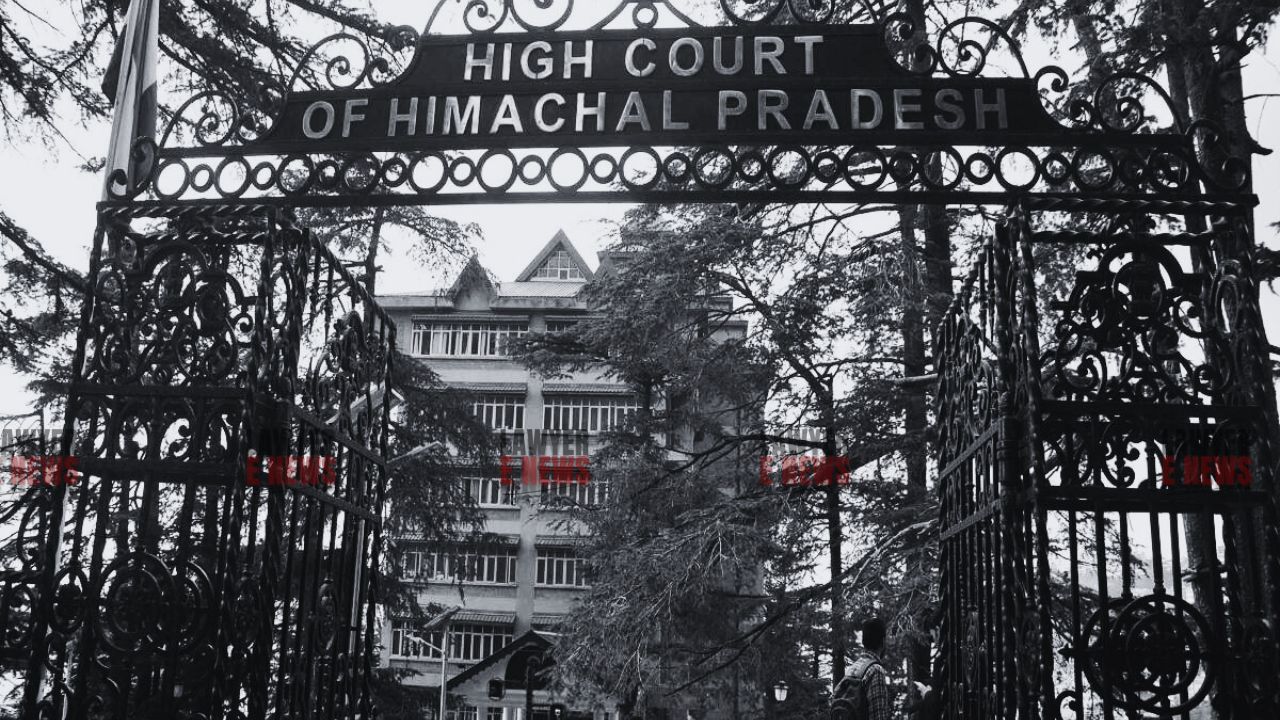-
by Admin
15 February 2026 5:35 AM



Himachal Pradesh High Court upheld the conviction of Vikram Singh and another for issuing a dishonoured cheque, ruling that the presumption of legality under Section 139 of the Negotiable Instruments Act (NI Act) remains unless effectively rebutted by the accused. The court emphasized that a cheque carries with it a presumption of legal liability, and failure to provide sufficient evidence to the contrary results in conviction.
The case stems from a business relationship between Ridhi Sidhi Traders, a firm owned by complainant Mohit Aggarwal, and the accused, Vikram Singh. The complainant was appointed as a clearing and forwarding (C&F) agent by the accused, who demanded ₹15,00,000 as security. The complainant provided three cheques totaling the amount, with ₹5,00,000 each on October 10 and 17, 2014, and ₹13,00,000 on November 12, 2014. Goods worth ₹5,34,413 were delivered to the complainant. Due to slow sales, some of the material was returned, leaving a balance of ₹21,30,134 owed to the complainant.
On October 25, 2015, the accused issued a cheque for ₹1,50,000, but it was dishonoured due to "insufficient funds." A legal notice was served, yet the accused failed to make the payment, leading to the filing of a complaint under Section 138 of the NI Act.
The Judicial Magistrate First Class, Kasauli convicted the accused, sentencing him to six months’ simple imprisonment and imposing a compensation of ₹2,00,000. The Sessions Court later upheld this decision, prompting the accused to file a revision petition in the High Court.
The accused contended that the cheque had been issued as security and that the complaint was improperly filed by Ridhi Sidhi Traders, arguing it lacked legal status as a proprietary concern. He relied on the Shankar Finance and Investment vs. State of Andhra Pradesh case to support this argument.
Presumption of Legality: The court reiterated that once a cheque is issued, it carries a presumption of legality under Section 139 of the NI Act. The burden to disprove this lies with the accused, who must provide evidence to rebut the presumption.
Complaint Filed by a Proprietary Concern: The court referred to the Shankar Finance case, clarifying that a proprietary concern is indistinguishable from its owner and can file complaints in its name. The court dismissed the argument that the complaint was invalid because it was filed by the firm instead of its owner, Mohit Aggarwal.
Dishonour of Cheque: The court emphasized that the cheque was dishonoured due to insufficient funds, as evidenced by the bank memo. The accused did not dispute signing the cheque, which, as per precedent, triggers the presumption of liability unless rebutted with credible evidence.
The High Court, presided over by Justice Rakesh Kainthla, dismissed the revision petition. The court held that the accused failed to produce any evidence to counter the presumption under Section 139. The defense that the cheque was issued as security was deemed insufficient without supporting evidence. The court also found no procedural irregularities in the filing of the complaint.
Citing precedents, including Kalamani Tex vs. P. Balasubramanian and Bir Singh vs. Mukesh Kumar, the court ruled that once a cheque is issued, it is presumed to be for the discharge of a debt or liability unless the accused proves otherwise.
The High Court upheld the conviction, affirming the lower court’s sentence of six months of simple imprisonment and the compensation of ₹2,00,000. The court emphasized the deterrent purpose of Section 138 of the NI Act, which aims to instill confidence in cheque transactions by penalizing dishonoured cheques.
Date of Decision: October 3, 2024
Vikram Singh and Anr. vs. Ridhi Sidhi Traders and Anr.
